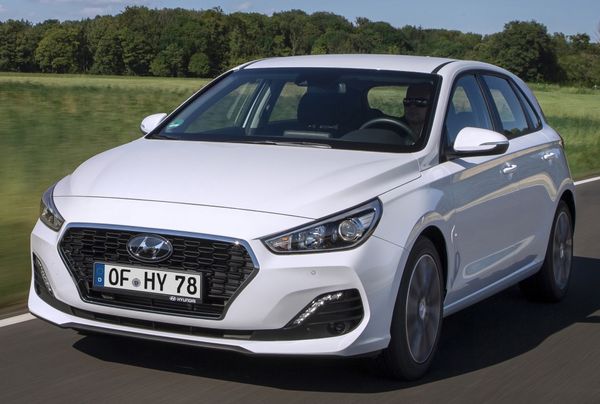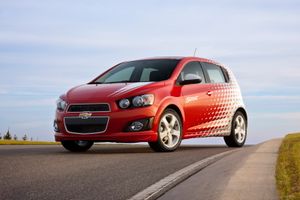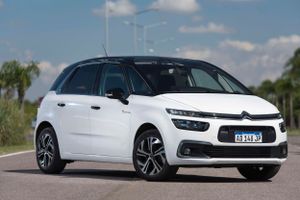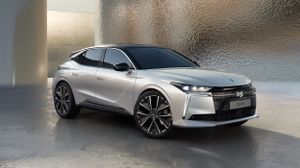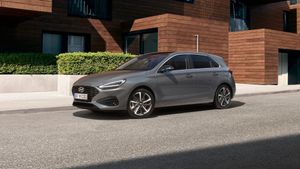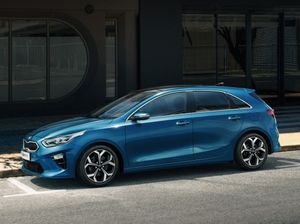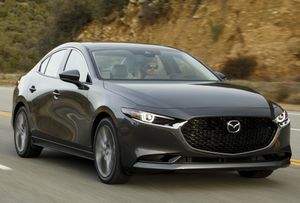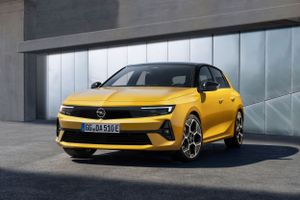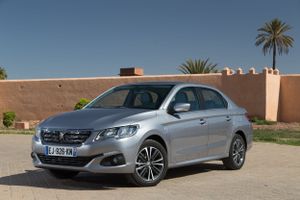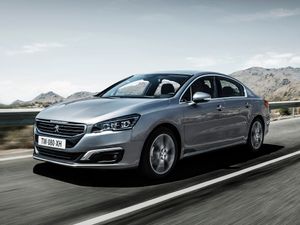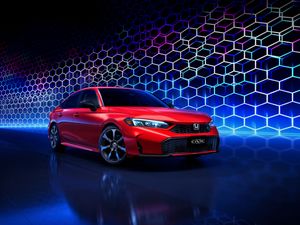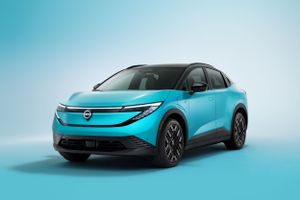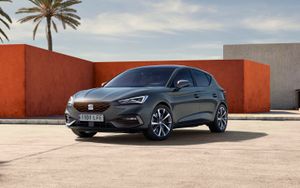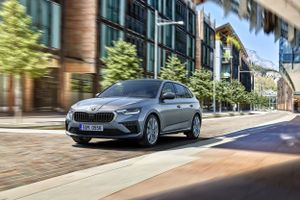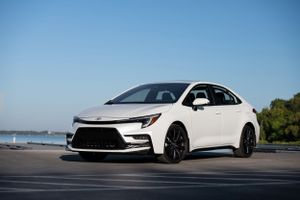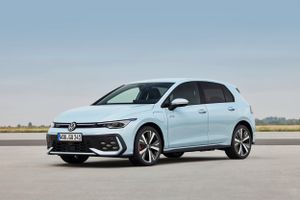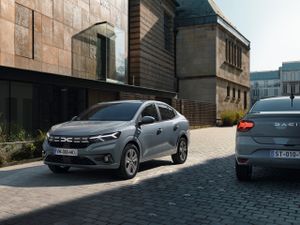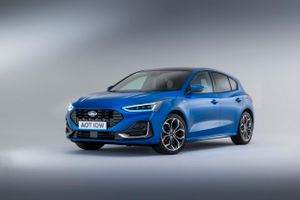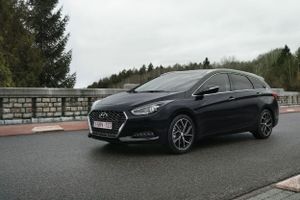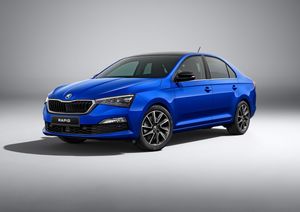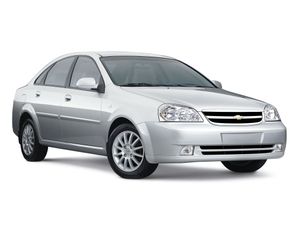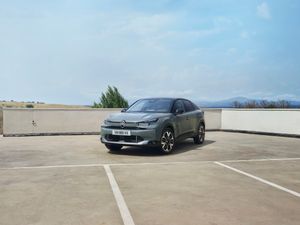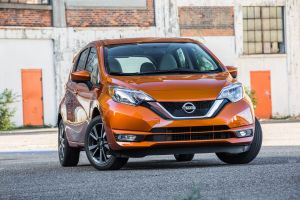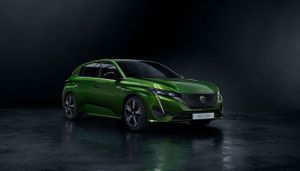Comparison of Peugeot 308 and Hyundai i30
Comparison of Peugeot 308 and Hyundai i30
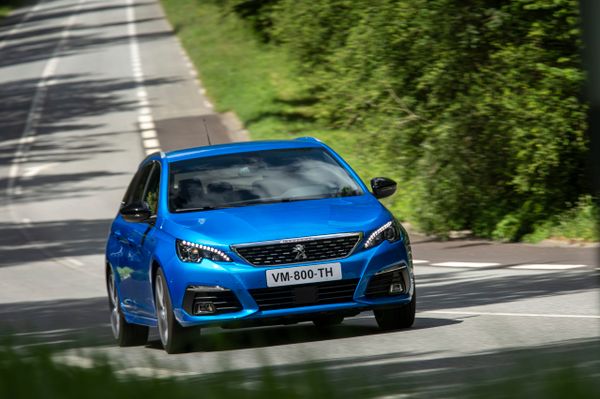
Peugeot 308
Price not determined
No one is selling yet
Characteristics
Peugeot 308 and Hyundai i30
Transmission
Automatic
Robotic
Number of gears
8
7
Type of drive
FWD
FWD
Top speed
235 km/h
205 km/h
Acceleration to 100
7.4 sec
9.2 sec
Fuel tank capacity
53 l
50 l
Curb weight
1 279 kg
1 250 kg
Max weight
1 815 kg
1 850 kg
Length
4 253 mm
4 340 mm
Width
1 804 mm
1 795 mm
Height
1 457 mm
1 455 mm
Wheelbase
2 620 mm
2 650 mm
Front track width
1 559 mm
1 573 mm
Rear track width
1 553 mm
1 581 mm
Trunk volume min
420 l
395 l
Trunk volume max
1 228 l
1 301 l
Wheel size
225/40 R18
205/55 R16
225/45 R17
225/45 R17
Fuel consumption city
7.3 l
6.4 l
Fuel consumption highway
4.8 l
5 l
Average consumption
5.7 l
ECO class
Euro 6
Euro 6
CO2 emissions
132 g/km
130 g/km
Engine type
Gasoline
Gasoline
Engine location
Front, transverse
Front, transverse
Engine power system
Direct injection (direct)
Direct injection (direct)
Engine capacity
1598 cm³
1353 cm³
Type of boost
Turbo
Turbo
Cylinder arrangement
Inline
Inline
Number of cylinders
4
4
Valves per cylinder
4
4
Compression ratio
10
Bore and stroke
77 × 85.8 mm
71.6 × 84 mm
Maximum power
225 (165 ) 5500
140 (103 ) 6000
Maximum torque N⋅m
306 1900
247 1500
Front suspension
Independent, spring
Independent, spring
Rear suspension
Semi-independent, springorts hélicoïdaux, sem
Independent, spring
Front brakes
Ventilated disc
Ventilated disc
Rear brakes
Disс
Disс
Clearance
110
140
Trim version
Peugeot 308 and Hyundai i30
Driver's airbag
Passenger airbag
Side front airbags
Side rear airbags
Window airbags (curtains)
Driver's knee airbag
Driver drowsiness detection
Tire pressure sensors
Keyless central locking
Immobilizer
Rear-view camera
Isofix for the back row
Isofix for the front row seats
Cruise control
Adaptive Cruise Control
Adaptive Cruise Control
Anti-lock braking system (ABS)
Electronic stability program (ESP)
Hill start assist (HAS)
Emergency brake assist (BAS, EBD, EBA)
Automatic slip regulation (ASR)
Vehicle stability management system (VSM)
Collision avoidance system
Lane departure warning system
Blind spot monitoring system
Drive mode selection system
Traffic sign assist
USB
Bluetooth
12V
Carplay
AUX
Android Auto
Wireless Charging for Smartphone
Sound
Audio system
Pedal pads
Kicking plates
Sports front seats
Tinted glass
Panoramic roof
Front center armrest
Power window
Leather steering wheel
Sunroof
Seat adjustment
Front seats adjustment
Driver's seat adjustment
Seat trim
Combined seat trim
Fabric seats
Steering wheel height adjustment
Steering wheel reach adjustment
Front parking sensors
Rear parking sensors
Automatic parking system
Air conditioner
Dual-zone climate control
Dual-zone climate control
Cooled glove box
On-board computer
Keyless entry system
Engine Start Button
Start-stop system
Power folding mirrors
Power mirrors
Multifunction steering wheel
Paddle Shifters
Folding mirrors
Full size spare tire
Metallic
External styling
Headlights
LED headlights
LED headlights
Daytime running lights
Fog lamp
Light sensor
Rain sensor
Adaptive front-lighting system
High beam assist
Diameter
R18
R17
Material
Alloy
Photos
Peugeot 308
Hyundai i30
Comparison of Peugeot 308 with other cars
Comparison of Hyundai i30 with other cars
Today on the Market
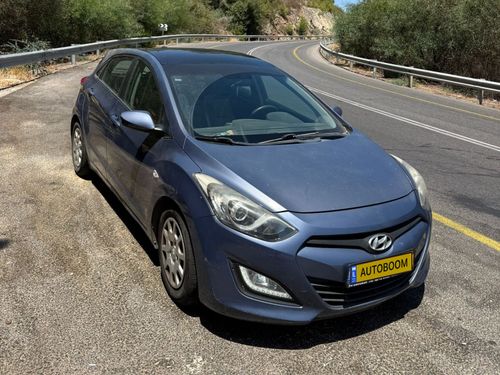
Hyundai i30, 2013
₪ 26 500
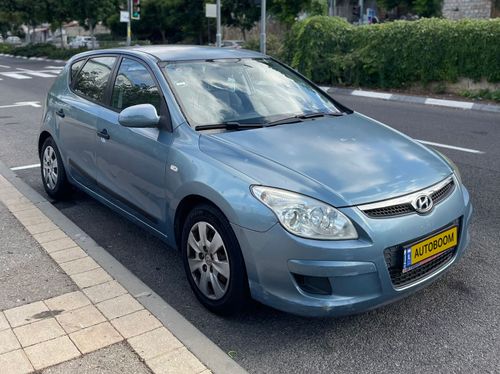
Hyundai i30, 2008
₪ 14 000
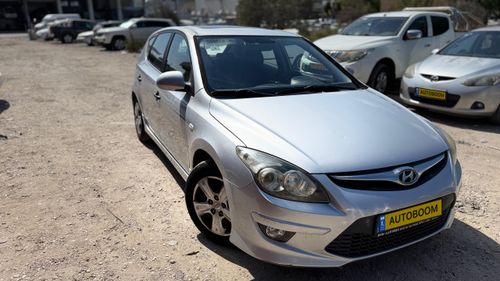
Hyundai i30, 2010
₪ 16 500
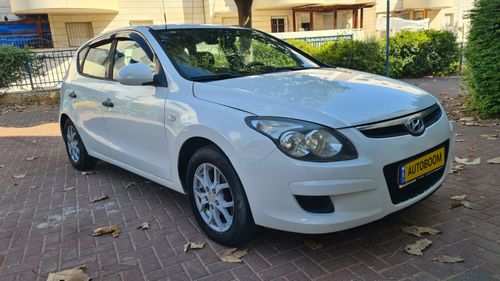
Hyundai i30, 2009
₪ 15 900
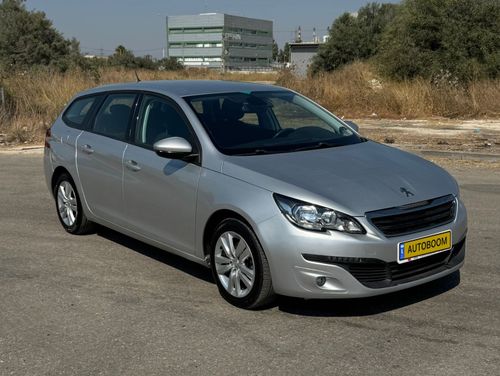
Peugeot 308, 2016
₪ 21 500
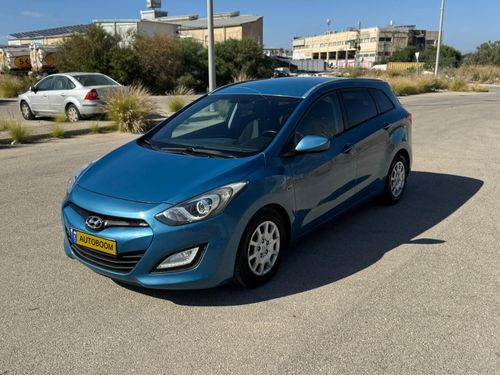
Hyundai i30, 2013
₪ 23 000
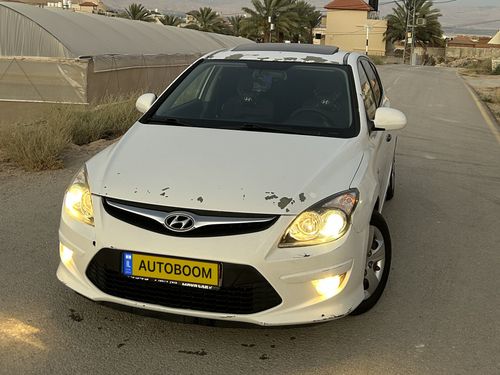
Hyundai i30, 2010
₪ 14 000
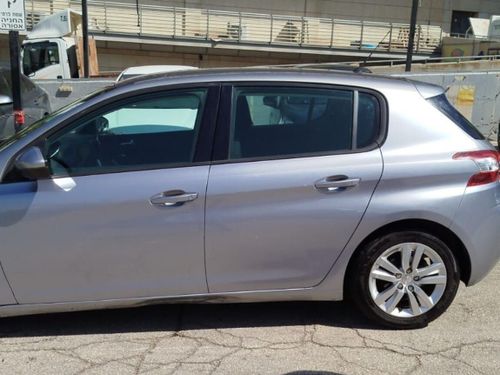
Peugeot 308, 2016
₪ 21 000
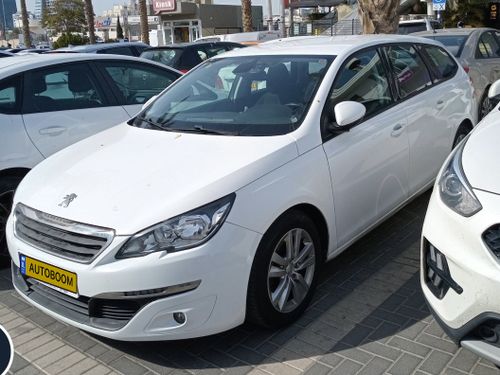
Peugeot 308, 2017
₪ 22 990
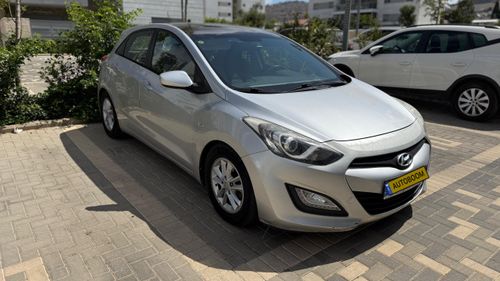
Hyundai i30, 2014
₪ 36 000
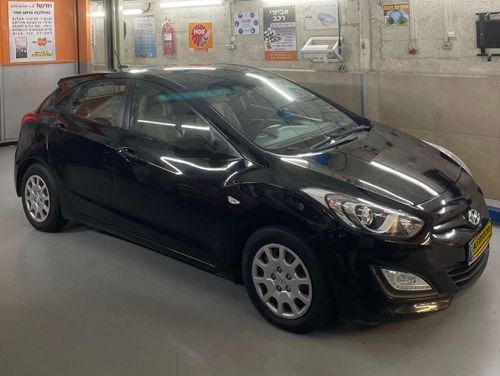
Hyundai i30, 2013
₪ 29 500
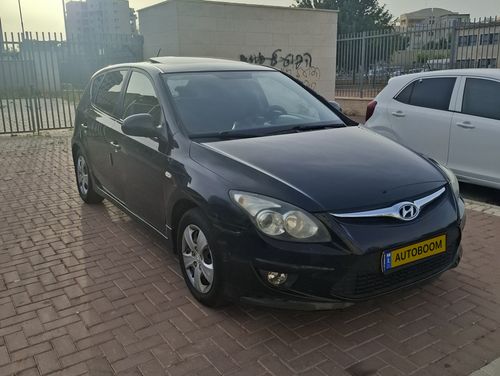
Hyundai i30, 2011
₪ 14 500

Hyundai i30, 2012
₪ 30 000
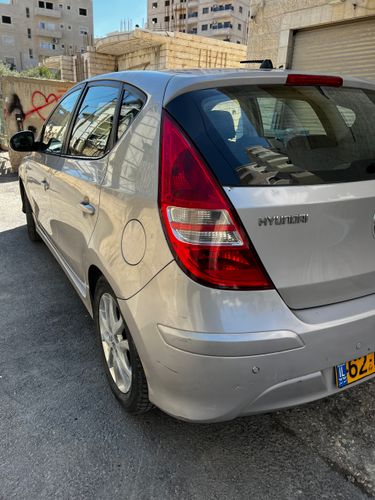
Hyundai i30, 2011
₪ 16 000

Hyundai i30, 2008
₪ 14 500

Peugeot 308, 2016
₪ 24 900

Hyundai i30, 2018
₪ 54 900

Hyundai i30, 2015
₪ 33 000

Hyundai i30, 2008
₪ 15 000
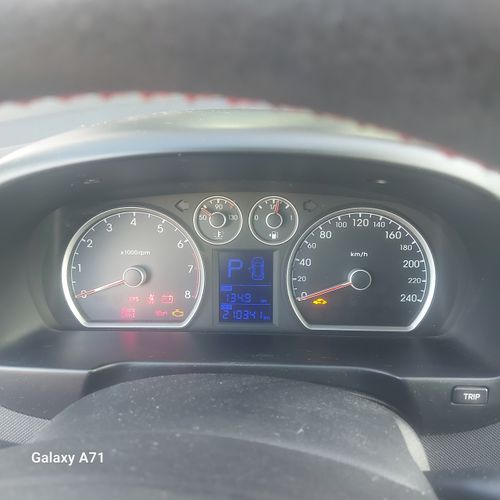
Hyundai i30, 2010
₪ 19 999
Compare similar cars Peugeot 308 and Hyundai i30
Peugeot 308 and Hyundai i30 are two popular cars, each with its own unique advantages and features. The choice between Peugeot 308 and Hyundai i30 depends on the driver's needs and preferences.Peugeot 308 and Hyundai i30 are two popular cars, each with its own unique advantages and features. The choice between Peugeot 308 and Hyundai i30 depends on the driver's needs and preferences.
